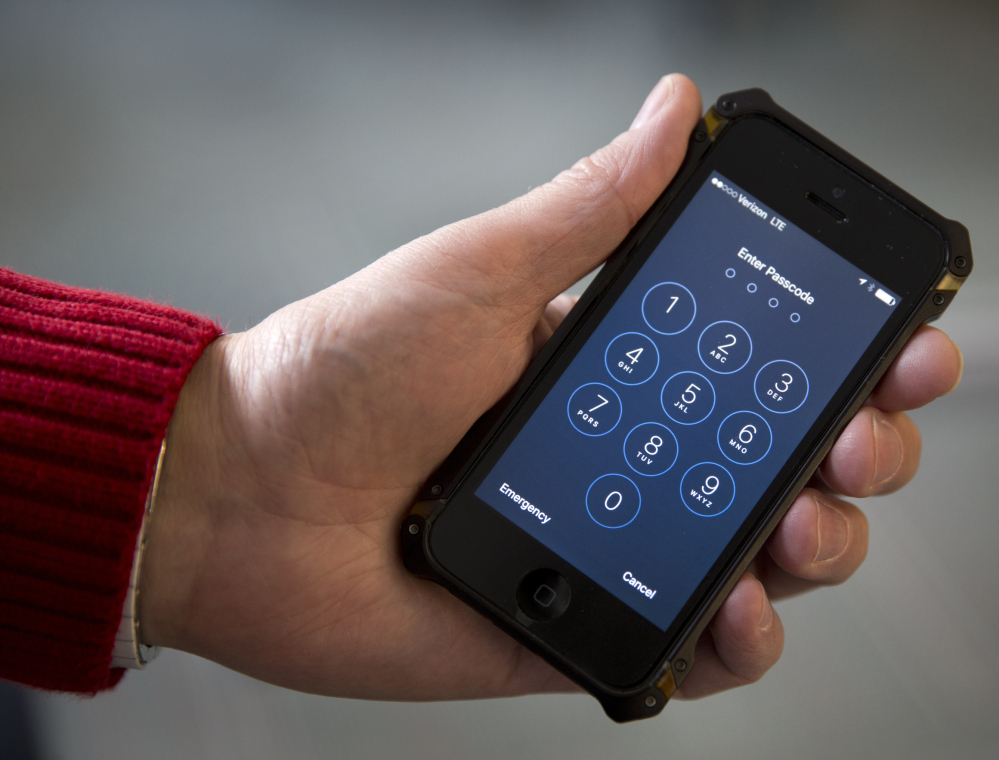YORK — It is time to put some facts on the table. Computers are wonderful tools, but they do have some serious limitations. With all the chatter about privacy and secrecy, it is time to inform both the smart people and the average people of a very important fact: There is no such thing as privacy or secrecy on the internet.
How do I know this? I’ll keep it simple. My background is in mathematics and economics. My knowledge and understanding of computers go way back.
From the beginning, starting with ENIAC, the first mainframe, computers have always needed and have a “backdoor” so that the normal authentication process can be bypassed and repairs and alterations to the programs can be made.
Today, everybody is very concerned about passwords and privacy. People think they have privacy. Wrong. All computers can be accessed if they are attached to the internet. Even the ones that aren’t can be accessed. It’s just a little trickier.
What does this mean?
It means that everything you write on your computer is available to everyone, even though you think you have erased it or think you have proper security on your machine.
Meaningful examples:
• The FBI had discovered an iPhone 5C at the home of the assassins in San Bernardino, California. They asked Apple for assistance in unlocking the phone and decoding the messages and other data. Apple said “no” because it would compromise their security systems.
I personally was appalled at such a response. However, what did the government do? They found a third-party expert who could break into the supposedly secure iPhone and retrieve the information that was important to our national security. (P.S.: Apple wanted to see what was discovered, but the government said “no.”)
• The big fuss over Hillary Clinton’s handling of email as secretary of state. That was purely political. From the brief description we got, she had taken all due precautions and obviously nothing got out.
How do I know that? Well, enough time has passed and there has been no international fallout from the period when she was running the State Department (2009 through January 2013).
By the way, the motivation for her setting up a more efficient and private email system was the clunky systems the government agencies now use. There is apparently no budget for upgrading the government’s computer systems. Now there is something to deal with. The computer ignorance of Congress is enormous.
• Now we have Debbie Wasserman Schultz forced to step down as head of the Democratic National Committee after becoming ensnared in a scandal because she did not understand that no system is private. Her emails got hacked and messages were leaked indicating that party leaders favored Clinton over Bernie Sanders in the primary process.
In the wake of these events, I have several suggestions.
• Acknowledge the facts. The Republican effort to undercut or pin something on Hillary Clinton is political. In reality, the accusations against her mean nothing to our national security.
• Take a lesson from two former secretaries of state, Madeleine Albright and Colin Powell. They did not use email. They conferred in the old ways: by pen and paper, by typewriter and by telephone. That is how you maintain privacy and secrecy.
• For top-secret stuff, encryption is recommended and is probably in use by the government and by industry. That enhances the ability to keep a secret.
So let’s get on with it. Acknowledge reality. Computers are marvelous tools – just not for everything. You want to keep a secret? Then keep it to yourself. If you must confer on a sensitive subject, be sure you are in a secure location.
Copy the Story LinkSend questions/comments to the editors.



Success. Please wait for the page to reload. If the page does not reload within 5 seconds, please refresh the page.
Enter your email and password to access comments.
Hi, to comment on stories you must . This profile is in addition to your subscription and website login.
Already have a commenting profile? .
Invalid username/password.
Please check your email to confirm and complete your registration.
Only subscribers are eligible to post comments. Please subscribe or login first for digital access. Here’s why.
Use the form below to reset your password. When you've submitted your account email, we will send an email with a reset code.